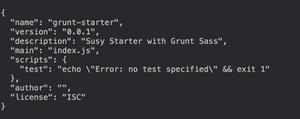Spring中使用Map、Set、List、数组、属性集合的注入方法配置文件
本文内容纲要:Spring中使用Map、Set、List、数组、属性集合的注入方法配置文件
(1)下边的一个java类包括了全部Map、Set、List、数组、属性集合等这些容器,主要用于演示Spring的注入配置;
package com.lc.collection;import java.util.List;
import java.util.Map;
import java.util.Properties;
import java.util.Set;
public class Department {
private String name;
private String [] empName;//数组
private List<Employee> empList;//list集合
private Set<Employee> empsets;//set集合
private Map<String,Employee> empMaps;//map集合
private Properties pp;//Properties的使用
public Set<Employee> getEmpsets() {
return empsets;
}
public void setEmpsets(Set<Employee> empsets) {
this.empsets = empsets;
}
public String[] getEmpName() {
return empName;
}
public void setEmpName(String[] empName) {
this.empName = empName;
}
public String getName() {
return name;
}
public void setName(String name) {
this.name = name;
}
public List<Employee> getEmpList() {
return empList;
}
public void setEmpList(List<Employee> empList) {
this.empList = empList;
}
public Map<String, Employee> getEmpMaps() {
return empMaps;
}
public void setEmpMaps(Map<String, Employee> empMaps) {
this.empMaps = empMaps;
}
public Properties getPp() {
return pp;
}
public void setPp(Properties pp) {
this.pp = pp;
}
}
(2)Spring配置文件beans.xml文件
<?xml version="1.0" encoding="utf-8"?><beans xmlns="http://www.springframework.org/schema/beans"
xmlns:xsi="http://www.w3.org/2001/XMLSchema-instance"
xmlns:context="http://www.springframework.org/schema/context"
xmlns:tx="http://www.springframework.org/schema/tx"
xsi:schemaLocation="http://www.springframework.org/schema/beans http://www.springframework.org/schema/beans/spring-beans-2.5.xsd
http://www.springframework.org/schema/context http://www.springframework.org/schema/context/spring-context-2.5.xsd
http://www.springframework.org/schema/tx http://www.springframework.org/schema/tx/spring-tx-2.5.xsd">
<bean id="department" class="com.hsp.collection.Department">
<property name="name" value="財务部"/>
<!-- 给数组注入值 -->
<property name="empName">
<list>
<value>小明</value>
<value>小明小明</value>
<value>小明小明小明小明</value>
</list>
</property>
<!-- 给list注入值 list 中能够有相当的对象 -->
<property name="empList">
<list>
<ref bean="emp2" />
<ref bean="emp1"/>
<ref bean="emp1"/>
<ref bean="emp1"/>
<ref bean="emp1"/>
<ref bean="emp1"/>
<ref bean="emp1"/>
</list>
</property>
<!-- 给set注入值 set不能有同样的对象 -->
<property name="empsets">
<set>
<ref bean="emp1" />
<ref bean="emp2"/>
<ref bean="emp2"/>
<ref bean="emp2"/>
<ref bean="emp2"/>
</set>
</property>
<!-- 给map注入值 map仅仅有key不一样,就能够装配value -->
<property name="empMaps">
<map>
<entry key="11" value-ref="emp1" />
<entry key="22" value-ref="emp2"/>
<entry key="22" value-ref="emp1"/>
</map>
</property>
<!-- 给属性集合配置 -->
<property name="pp">
<props>
<prop key="pp1">abcd</prop>
<prop key="pp2">hello</prop>
</props>
</property>
</bean>
<bean id="emp1" class="com.hsp.collection.Employee">
<property name="name" value="北京"/>
<property name="id" value="1"/>
</bean>
<bean id="emp2" class="com.hsp.collection.Employee">
<property name="name" value="天津"/>
<property name="id" value="2"/>
</bean>
</beans>
(3)怎样使用
package com.lc.collection;import java.util.Enumeration;
import java.util.Iterator;
import java.util.Map;
import java.util.Properties;
import java.util.Map.Entry;
import org.springframework.context.ApplicationContext;
import org.springframework.context.support.ClassPathXmlApplicationContext;
public class App1 {
public static void main(String[] args) {
ApplicationContext ac=new ClassPathXmlApplicationContext("com/lc/collection/beans.xml");
Department department=(Department) ac.getBean("department");
System.out.println(department.getName());
for(String emName:department.getEmpName()){
System.out.println(emName);
}
/*
* 通过list集合取出数据
*/
System.out.println("**********通过list集合取出数据*****");
for(Employee e : department.getEmpList()){
System.out.println("name="+e.getName()+" "+e.getId());
}
/*
* 通过set集合取出数据
*/
System.out.println("**********通过set集合取出数据*****");
for(Employee e : department.getEmpsets()){
System.out.println("name="+e.getName());
}
/*
* 通过map集合取出数据 迭代器
*/
System.out.println("*******通过map集合取出数据 迭代器****");
//1.迭代器
Map<String,Employee> empmaps=department.getEmpMaps();
Iterator it=empmaps.keySet().iterator();
while(it.hasNext()){
String key=(String) it.next();
Employee emp=empmaps.get(key);
System.out.println("key="+key+" "+emp.getName());
}
System.out.println("*******通过map集合取出数据 简洁方法****");
//2.简洁方法
for(Entry<String,Employee> entry1:department.getEmpMaps().entrySet()){
System.out.println(entry1.getKey()+" "+entry1.getValue().getName());
}
System.out.println("*****通过Propertis取出数据*****");
Properties pp=department.getPp();
for(Entry<Object,Object> entry:pp.entrySet()){
System.out.println(entry.getKey().toString()+" "+entry.getValue().toString());
}
System.out.println("*****通过Enumeration取出*****");
Enumeration en= pp.keys();
while(en.hasMoreElements()){
String key=(String) en.nextElement();
System.out.println(key+" "+pp.getProperty(key));
}
}
}
(4)以后那些不知道的粘贴拷贝就可以
注:转载请注明出处!
本文内容总结:Spring中使用Map、Set、List、数组、属性集合的注入方法配置文件
原文链接:https://www.cnblogs.com/jzdwajue/p/7182385.html
以上是 Spring中使用Map、Set、List、数组、属性集合的注入方法配置文件 的全部内容, 来源链接: utcz.com/z/296026.html









